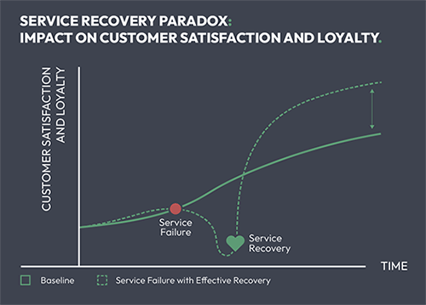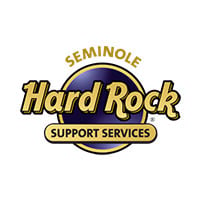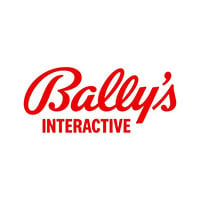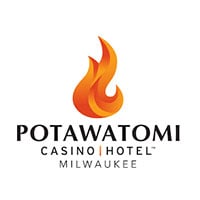
- Our Insights
- The Service Recovery Paradox
Intro
In today's highly competitive business landscape, customer satisfaction is a paramount concern for companies aiming to succeed and grow. However, despite best efforts, service failures and dissatisfactions are inevitable occurrences. The service recovery paradox, a concept rooted in the realm of customer relationship management, presents an intriguing phenomenon where effective resolution of customer complaints can lead to enhanced customer loyalty and satisfaction, potentially surpassing levels before the service failure occurred. This paper delves into the intricacies of the service recovery paradox, examining its underlying mechanisms, real-world applications, and implications for businesses aiming to excel in customer-centric strategies.
Understanding the Service Recovery Paradox
Defining the Paradox
The service recovery paradox, often referred to as the "paradox of customer dissatisfaction," revolves around the idea that successfully addressing and rectifying customer complaints following a service failure can result in a higher level of customer satisfaction and loyalty compared to a situation where no failure occurred at all. In other words, a negative experience, if handled adeptly, can lead to a more positive perception of the company than if the initial service encounter was flawless.

Key Elements
Several key elements contribute to the service recovery paradox:
- Service Failure: A failure occurs when a company fails to meet customer expectations, resulting in dissatisfaction.
- Complaint Handling: This phase involves how effectively and promptly a company addresses customer complaints after a service failure.
- Recovery Efforts: The actions taken by the company to rectify the situation and regain customer trust.
- Customer Satisfaction: The overall feeling of contentment or fulfillment a customer experiences after interacting with a company.
- Customer Loyalty: A customer's intention to continue doing business with a company due to positive experiences and perceived value.
Mechanisms Underlying the Paradox
The service recovery paradox hinges on psychological and behavioral mechanisms that influence how customers perceive and respond to service failures and recovery efforts.
Psychological Reversal of Expectations
When a customer encounters a service failure, their expectations are momentarily lowered. Consequently, an effective recovery effort can exceed these diminished expectations, resulting in a positive surprise and heightened satisfaction.
Empathy and Trust Building
Customers are more likely to feel valued and understood when a company displays genuine concern for their dissatisfaction. Empathetic and swift complaint resolution can foster trust and a sense of partnership between the company and the customer.
Perceived Fairness and Justice
The fairness of the recovery process significantly impacts how customers perceive the overall situation. A fair and just resolution can mitigate negative emotions and enhance customer satisfaction.
Positive Word-of-Mouth and Social Proof
Customers who experience exceptional service recovery are more inclined to share their positive experiences with others. This word-of-mouth promotion serves as social proof and can attract new customers.
Real-World Applications
Service Recovery Strategies
Companies adopt various strategies to effectively manage service recovery and leverage the paradox to their advantage:
- Swift Response: Promptly addressing complaints demonstrates a commitment to customer well-being and minimizes the negative impact of the initial service failure.
- Personalized Communication: Tailoring recovery efforts to individual customer preferences and needs enhances the perception of genuine concern.
- Compensation and Incentives: Offering tangible incentives, such as discounts or free products, can go a long way in re-establishing customer loyalty.
Industry Examples
Airlines
The airline industry, notorious for service disruptions, utilizes the service recovery paradox to turn disgruntled passengers into loyal customers. Swiftly rebooking passengers affected by flight cancellations, offering meal vouchers, and providing honest and empathetic communication can create positive outcomes.
Hospitality
Hotels often face issues ranging from room discrepancies to service hiccups. By addressing these problems promptly, offering room upgrades, and delivering personalized amenities, hotels can convert disappointed guests into loyal patrons.
Implications for Businesses
Long-Term Customer Relationships
Embracing the service recovery paradox is pivotal for building lasting customer relationships. When customers perceive that a company values their satisfaction and responds positively to issues, they are more likely to remain loyal.
Competitive Advantage
Companies that adeptly utilize the service recovery paradox gain a competitive edge by differentiating themselves from competitors solely focused on preventing service failures. Effective complaint handling can lead to positive brand recognition.
Employee Training and Empowerment
Empowering employees to handle complaints with empathy and authority is essential. Well-trained employees can turn service failures into opportunities for positive interactions, enhancing overall customer experience.
Metrics and Evaluation
Measuring the impact of service recovery efforts is crucial for refining strategies. Tracking customer satisfaction before and after recovery can provide insights into the effectiveness of the approach.
Additional Insights & Qualitative Statistics
Impact of Effective Service Recovery:
According to a study by McKinsey, customers who have their complaints effectively resolved are more likely to become loyal brand advocates. In the hospitality industry, this means that guests who experience efficient and satisfactory service recovery are more likely to return to the same establishment and recommend it to others.
Influence of Negative Reviews:
A TripAdvisor study found that 78% of travelers are more likely to choose a hotel that responds to reviews, indicating that addressing negative feedback and complaints can positively influence consumer decisions.
Word-of-Mouth and Social Media:
In the hospitality industry, a dissatisfied customer can share their negative experience with a larger audience through online platforms. Conversely, an effective service recovery can lead to positive online reviews, which can attract new customers. Research has shown that positive word-of-mouth from satisfied customers can have a substantial impact on attracting new guests.
Loyalty and Repeat Business:
A study published in the Journal of Hospitality & Tourism Research found that effective service recovery efforts have a significant positive effect on customer satisfaction, loyalty, and intentions to revisit a hotel. Repeat business is a key driver of success in the hospitality industry, making service recovery strategies essential.
Financial Impact:
In the hospitality industry, a common rule of thumb is that it costs several times more to acquire a new customer than to retain an existing one. Effective service recovery can help prevent customer churn and contribute to the bottom line.
Online Reputation Management:
Online review platforms such as TripAdvisor, Yelp, and Google Reviews play a crucial role in the hospitality industry. Handling negative reviews and turning them into positive experiences through service recovery can contribute to improved overall ratings and rankings.
Impact on Employee Morale:
A positive service recovery experience can also have a positive impact on employee morale. Employees who are empowered to resolve issues and witness customer satisfaction are more likely to feel motivated and engaged in their work.
Conclusion
The service recovery paradox underscores the dynamic relationship between service failures, complaint handling, and customer satisfaction. By strategically managing these elements, companies can not only address customer dissatisfaction but also create an environment where loyalty and positive word-of-mouth thrive. Embracing the paradox as a fundamental tenet of customer relationship management positions businesses to transform setbacks into steppingstones for long-term success in today's competitive market.
Credit to: McCollough, Michael A., and Sundar G. Bharadwaj. "The Recovery Paradox: An Examination of Customer Satisfaction in Relation to Disconfirmation, Service Quality, and Attribution Based Theories." In Marketing Theory and Applications, edited by Chris T. Allen, 119. Chicago: American Marketing Association, 1992.
LET'S GET TO WORK









